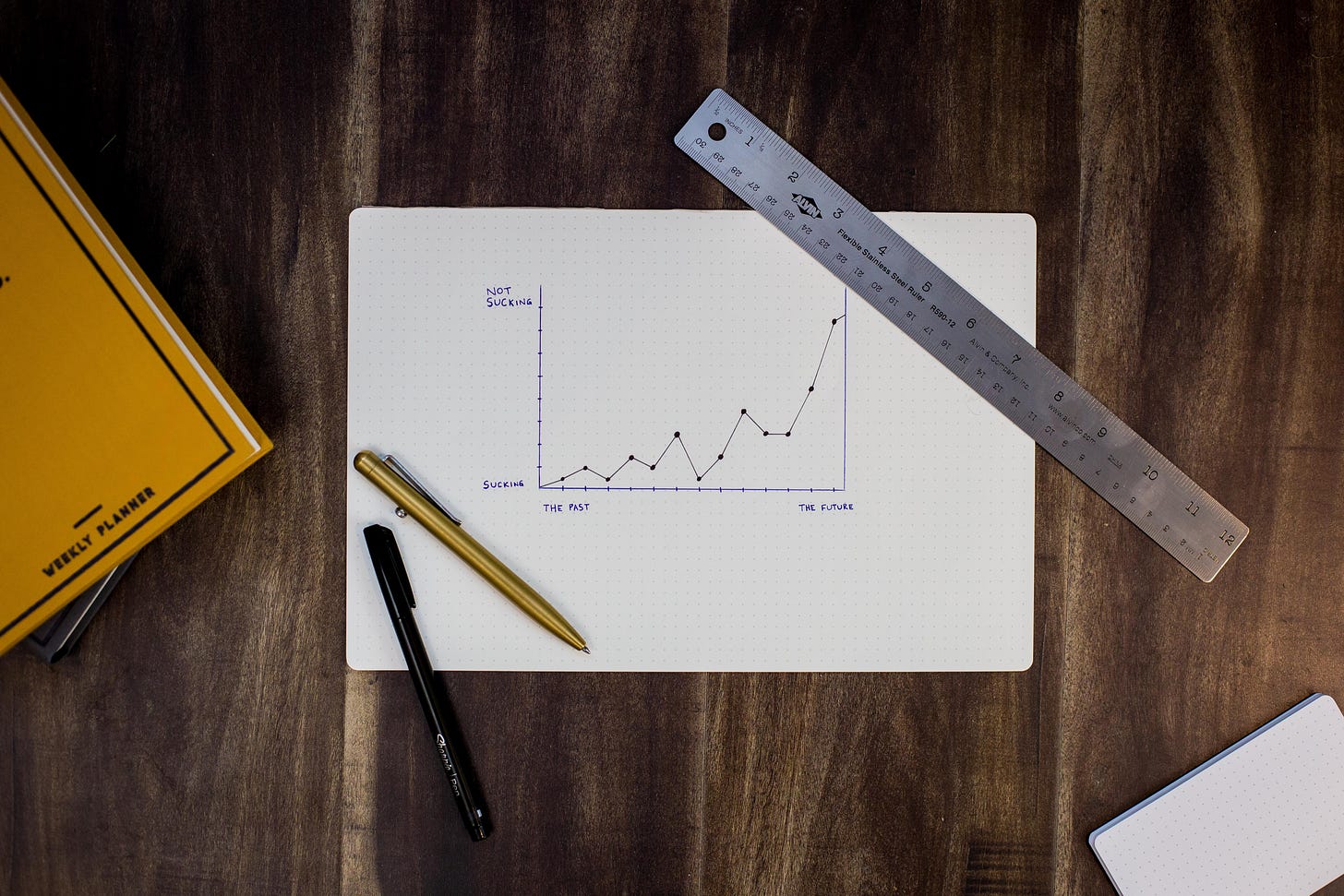On Idealism, Reality, and Action
“What is the pain of being human? It's the condition of being suspended between two worlds and being unable to fully enter into either.” - Steven Pressfield
We seek perfection. Yet we are bounded by reality.
Insights
“Our constant challenge is not to seek perfection in ourselves and others, but to find ways to be happy in an imperfect world.”
- Gordon Livingston
1/ Personal Perfection
Our capacity to conceptualize personal versions of perfection is a crucial aspect of our humanity.
Idealism represents both a longing for the future and nostalgia for the past. It is a projection of our ego that is familiar yet distant. The things we idealize are often the things just out of reach.
We can visualize our ideal situations: the perfect career, the perfect spouse, or the perfect versions of ourselves. These are powerful motivators.
2/ No Deal
Yet idealism by itself can indicate a detachment from the present.
Nostalgia for an idealized past is common and usually harmless. But it can sometimes distort our attempts to come to terms with the present.
For example, ideal love is heavily influenced by childhood crushes or first relationships. These give way to adult searches for the perfect partner. “This is a powerful fantasy, seldom realized.” (Gordon Livingston)
Ideal happiness and wealth become hedonistic treadmills. We chase the next purchase, event, or dopamine hit that will make us happy only to do it all over again.
3/ An Ideal Relationship
Idealism is an undeniable part of human experience.
It would be un-human to deny our idealism. Instead, we can develop a healthy relationship with it and use it strategically. Here’s how:
(1) Use idealism to learn about yourself. Our ideals can point to what we value and who we want to be. Used with reflection, it can bring us closer to self-understanding.
(2) Don’t expect your ideal to make you permanently happy. Even when we realize our ideals, we will fall back to some baseline level of happiness.
(3) Cultivate actionable idealism. Have a dream body? Use that imagery to tweak your workouts. Want to relax on a sandy beach? Set a time to do it. Actionable idealism is visceral, authentic, and starts with small steps.
Application: The Ideal Scenario
What is your ideal scenario? This is most often a daydream of you achieving something great, walking through fans, or even lying down on the beach. We all have these scenarios that play out in our heads.
(Interestingly, not many people get asked this question)Got it? Here are some questions for reflection:
(1) What is your ideal vision or “personal movie scene” in your head? Describe it and note the key details. What are you doing? Where are you?
(2) What do you think that says about you? Does it align with your personal goals?
(3) What’s something very small you can do now to achieve that vision? Sometimes there are quicker ways to realize it than you’d think.
Selected Bibliography
Inspired by:
Too Soon Old, Too Late Smart by Gordon Livingston
Turning Pro by Stephen Pressfield
Ego is the Enemy by Ryan Holiday
The Unbearable Lightness of Being by Milan Kundera
The Little Prince by Antoine de Saint-Exupery
The 4-Hour Workweek by Tim Ferriss
Thanks for reading this issue!
I hope this added a bit of inspiration and humanity to your week. At the very least, I hope it made you think.
Also, I’m starting to build a small community for this so if you’d like to be involved, just reply to this email!
See you next week (or sooner),
Javier




